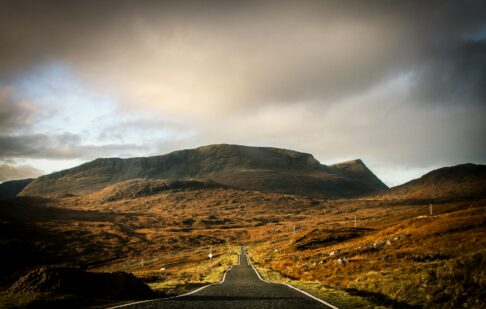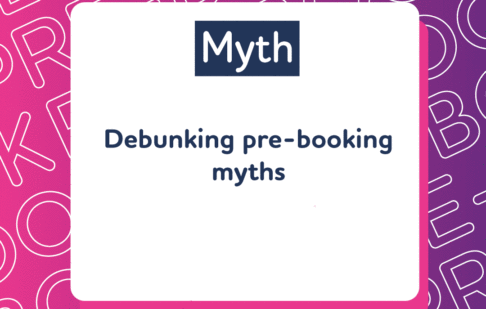The weather’s improving and with summer fast approaching loads of us will be thinking about escaping to the countryside on a camping trip.
Getting out and about and exploring is a wonderful way to relax and unwind, but camping, if you’re not prepared, can get stressful and uncomfortable really quickly. We’ve pulled a couple of tips together to help you make your next trip to the wilderness a breeze.
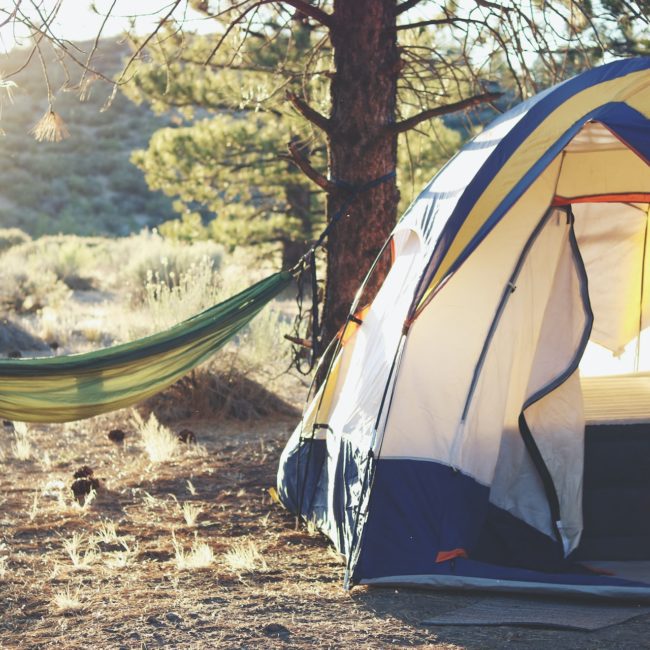
1. | Preparation is key
You can’t just wander into the great outdoors on a whim. There always needs to be some degree of planning, just to make sure you don’t ruin your trip by forgetting something you need.
Checklists are a fantastic starting point, sit down when you’re planning a trip and jot down everything you think you’re going to need. That helps you organise everything before you set off but also serves as a checklist when you’re packing the car.
2. | Location, location, location
Where you set up your tent is important. It isn’t as much of an issue on a proper campsite where each pitch is predefined, but if you’re just camping in a field or farmland for example there are a couple of things you need to keep in mind.
- Do you have permission to be there? Would you want waking up by an angry farmer accusing you of trespassing? Probably not so it’s always better to ask if you’re OK to set up camp somewhere.
- Look for dry, flat ground. Somewhere that isn’t necessarily going to turn into a mini swamp if it rains overnight.
- Don’t pitch under trees. It might look really nice and picturesque but a falling tree branch or your camp being set up with a root right where you were planning on sleeping is a sure-fire way to ruin your trip.
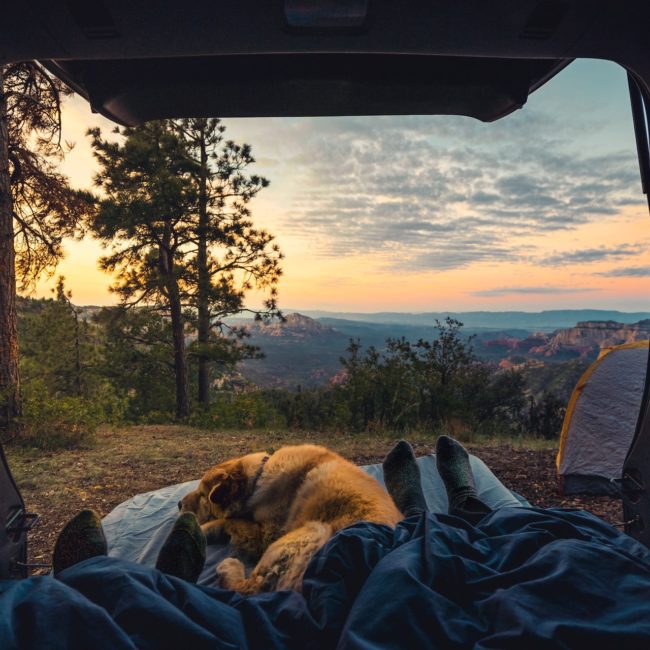
3. | Let there be light
Trying to see what you’re doing in the dark is never fun, whether you’re trying to find a snack or navigating a late-night trip to the loo. Headtorches, battery-powered lanterns or just a regular torch, are vital bits of kit for any camping trip.
Take a couple of different light sources with you, along with spare batteries and portable charging banks – those will be crucial if you go away for a few days, one evening in the dark can be a pain and put a damper on your trip.
4. | Pest-proof your food
When you’re on a camping trip it’s important to take snacks and things to eat with you. But, because you’re (at least in theory) closer to nature, and that means bugs, pests and critters that could be drawn to whatever food you bring with you.
This is why zip-loc bags, Tupperware and coolers are fantastic options. They help keep food fresh, sealed away and out of the reach of pests.
It’s also a good idea to think carefully about the sort of food you bring with you. Biscuits, non-perishable stuff, even dehydrated camping meals are all good options that don’t take up a lot of space and are easy to prepare.
5. | Bugs be-gone
Speaking of keeping creepy-crawlies at bay, one of the most important things to take with you on a camping trip, especially in the warmer months, is some sort of insect repellent.
Midges, flies, mosquitos, and other bugs can be a nuisance at the best of times, and bug bits are uncomfortable and annoying so avoiding them is always a good idea. Whether it’s a spray or even a candle you can light (NEVER do this in your tent, leave it outside and put it out before you turn in for the night) you can deter bugs relatively easily. It’s worth packing something to put on insect bites too, just in case.
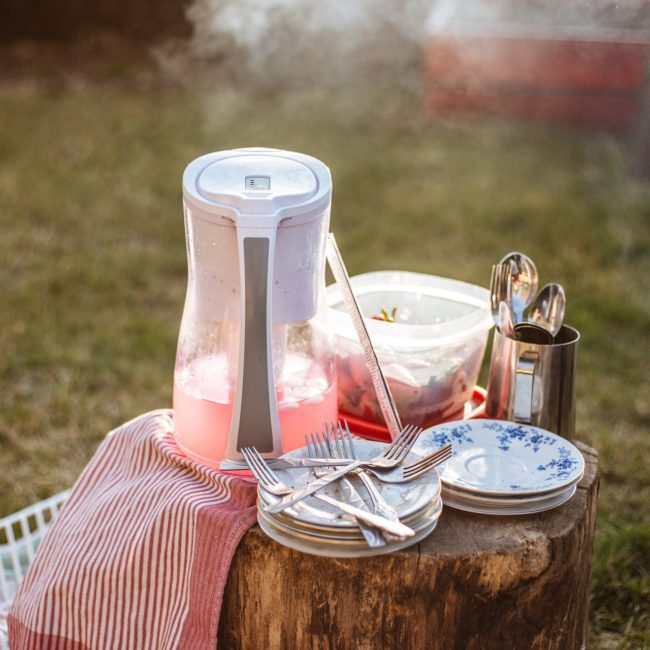
6. | Things to do
There’s more to a camping trip than just putting up a tent. You need activities and things to do while you’re away.
It’s easy enough to look at what’s near your camping location and choose activities in the area, but you also need things to do while you’re on the site. That could be board games, bringing some books or a Kindle, even something as simple as bringing a football for a bit of a kick about.
This is also a great way to distract the kids and keep them out the way while you try and set up your campsite.
7. | Packing AND re-packing
Packing and unpacking a campsite can be tricky and loading everything into a car can feel like a stressful game of Tetris.
When you’ve got people that are either keen to set off or eager to get home the last thing you want to be doing is trying to wedge the last bit of luggage into the back of your car. Luckily, there’s a quick trick that can help.
First, get your list from point one. Use that as a checklist for loading everything into the car.
Then, when you’ve successfully packed your car, take a picture of the boot. Giving yourself a visual reference of how you got everything into your car is really useful. It gives you something to go off and repeat when you’re packing the car up again later.
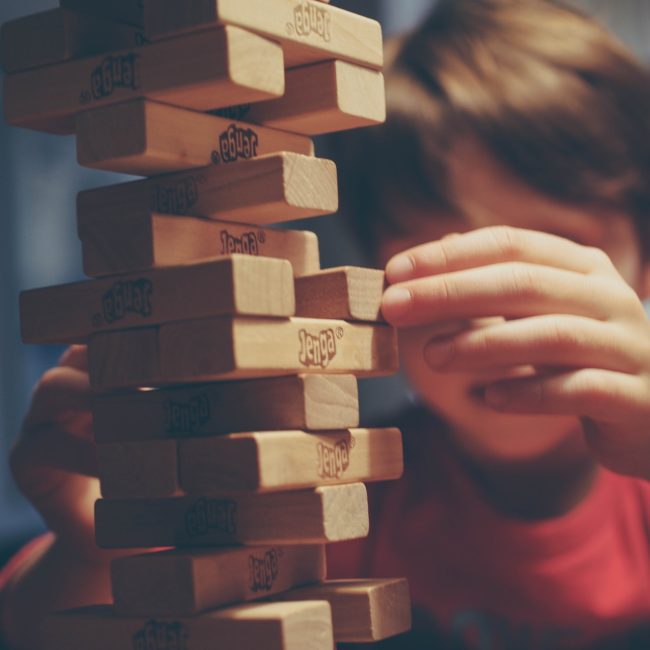
8. | Sleep soundly
Extra noise, different temperatures, sleeping on the ground and generally being outdoors don’t crop up often as things that help you get a good night’s sleep.
An air mattress or sleeping mat can make a huge difference. Firstly, it keeps you off the ground and a bit warmer, as well as giving you a softer surface to sleep on, free of the lumps and bumps you’ll find on the ground.
Beyond that if you want a decent nap, think about things like earplugs or an eye mask to block out excess light and sound. This can help you sleep a lot better and leave you well rested and ready for your day.
9. | Check BBQ rules in advance
Camping and barbecues go hand in hand. But it’s important that you consider the rules on a campsite before you start lighting the coals.
Different sites will have different rules, or even dedicated BBQ areas. It’s important to look ahead before you decide to rock up to a campsite with a load of food you can’t cook.
If you can use a BBQ on-site you need to be considerate too. Dispose of your BBQ safely and follow the rules for your campsite.
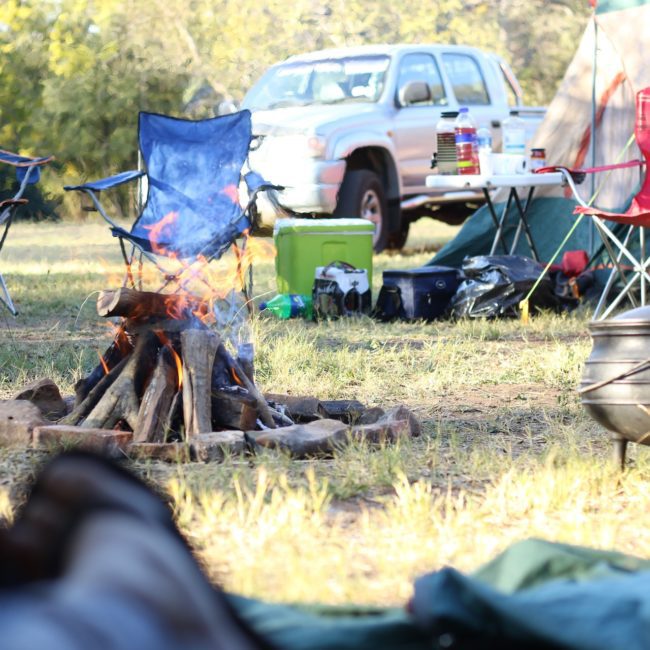
10. | Practice pitching
Trying to set up a campsite can be fiddly, especially with an audience of holidaymakers looking at the new people who’ve just arrived. It’s always a good idea before you actually go camping to have a trial run. Set your tent and other equipment up in the back garden, or even a park if you don’t have the space at home.
This lets you check if everything is still in good working order and lets you practice setting the camp up.
Camping might sound like a lot of preparation, but that’s sort of the point. These tips can help you make the most of your time in the countryside and give you way more time to spend enjoying yourself.
For more ways to plan trips, pay for parking, advice and news please follow us on social media.
